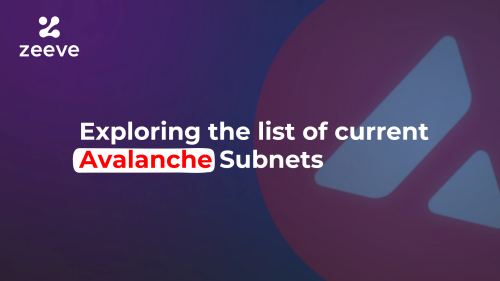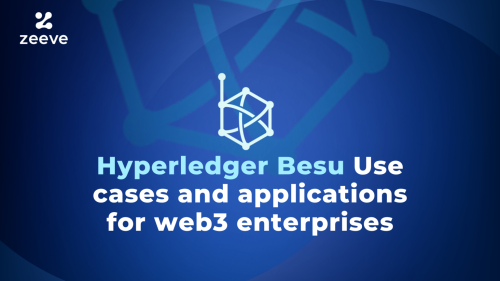The Relationship Between the US Citizen and the ICO
 +++ Originally Published on Disrupthub.io +++
+++ Originally Published on Disrupthub.io +++
Let’s look at the US Federal government’s position on issues that may affect the ICO market to see if we can understand the reason the average US citizen is often locked out of many ICOs.
I am not an attorney or an accountant – I am a businessman. So, from a business person’s perspective, let me share what I have observed. I go into this subject in greater detail at WHAT IS CAUSING THE US CITIZEN TO BE LOCKED OUT FROM INITIAL COIN OFFERINGS?
Disclaimer: This post is not intended to be a source of advice of any kind. This is just my personal opinion.
The Internal Revenue Service (IRS)
The IRS seems to be fine with stating that Cryptocurrency is property, as stated on March 25, 2014 in IRS Virtual Currency Guidance. Additionally, the IRS states:
The character of gain or loss from the sale or exchange of virtual currency depends on whether the virtual currency is a capital asset in the hands of the taxpayer.
That seems simple enough for my accountant to make a confident call as to what taxes I pay on my cryptocurrency activities. This does not seem to be causing the lockout of the US citizen, however. So, let’s keep looking.
The Foreign Account Tax Compliance Act (FATCA)
The Foreign Account Tax Compliance Act (FATCA), was enacted in 2010 to stop US citizens and residents from using overseas investments to avoid paying US taxes. The FATCA states:
Under FATCA, to avoid being withheld upon, foreign financial institutions (FFIs) may register with the IRS and agree to report to the IRS certain information about their U.S. accounts, including accounts of certain foreign entities with substantial U.S. owners.
Since an ICO receives, exchanges and stores fiat and cryptocurrency from participants, the ICO company may need to register as a FFI with FATCA and then comply with reporting requirements, This is probably not a trivial task.
The Financial Crimes Enforcement Network (FinCEN)
The Financial Crimes Enforcement Network (FinCEN) has weighed in on the issue of cryptocurrency. FinCEN’s mission is to fight domestic and international money laundering, terrorist financing, and other financial crimes. On March 18, 2013, FinCEN Issues Guidance on Virtual Currencies and Regulatory Responsibilities.
The guidance is in response to questions raised by financial institutions, law enforcement, and regulators concerning the regulatory treatment of persons who use convertible virtual currencies or make a business of exchanging, accepting, and transmitting them. Convertible virtual currencies either have an equivalent value in real currency or act as a substitute for real currency.
FinCEN’s rules define certain businesses or individuals as money services businesses (MSBs) depending on the nature of their financial activities. MSBs have registration requirements and a range of anti-money laundering, recordkeeping, and reporting responsibilities under FinCEN’s regulations. The guidance considers the use of virtual currencies from the perspective of several categories within FinCEN’s definition of MSBs.
An ICO exchanges an established cryptocurrency coin or fiat currency for a new coin from the ICO. The ruling above may apply to an ICO. After all, the ICO is exchanging one currency for another. If this is true, FinCEN seems to be saying that any ICO would need to go through proper registration as a Money Service Business (MSB).
The FinCEN ruling may be relevant to any company offering an ICO.
The Securities Exchange Commission (SEC)
The Securities Exchange Commission (SEC) wants investors to have access to basic facts about their investments. The question being whether the newly created cryptocurrency coin is a ‘security’. If it is a security, then the ICO coin is under the jurisdiction of the SEC.
Until recently, the SEC had not ruled that a coin received through an ICO was a security. On July 25, 2017, the SEC made a ruling on one very specific case, The DAO. They stated:
On July 25, 2017, the SEC issued a Report of Investigation under Section 21(a) of the Securities Exchange Act of 1934 describing an SEC investigation of The DAO, a virtual organization, and its use of distributed ledger or blockchain technology to facilitate the offer and sale of DAO Tokens to raise capital. The Commission applied existing U.S. federal securities laws to this new paradigm, determining that DAO Tokens were securities. The Commission stressed that those who offer and sell securities in the U.S. are required to comply with federal securities laws, regardless of whether those securities are purchased with virtual currencies or distributed with blockchain technology.
The SEC has made only one ruling at this point and it was to say that one past ICO was a security. That ICO was called The DAO. In relationship with this ruling, the SEC has provided guidance to the US investor offering caution for these types of investments. It seems reasonable to expect the SEC will continue to become more broad in its guidance in the future. But, this is what we seem to have, at this time.
Why is the ICO company locking out the United States citizen?
Let’s recap what steps the US Federal Government has taken on this issue;
- The IRS ruling that cryptocurrency is property does not seem to be relevant to this issue.
- FATCA may cause the ICO company to register as a foreign financial institutions (FFIs) with the IRS. This may not be a trivial task.
- The FinCEN ruling may cause a company accepting one currency or cryptocurrency for their newly created cryptocurrency to register as an MSB in the United States. Because of time and cost, this action is not on the top of the ToDo list for a company that has no intention of officially becoming a currency exchange.
- The SEC has provided a “shot over the bow” of all ICOs with their ruling on one specific past ICO called The DAO. That ruling has caused the ICO company to be incredibly cautious to not let a US citizen participate in their ICO.
So, the answer may not merely be the ICO’s concern about the SEC, as some may think. The IRS with FATCA and FinCEN may also play their respective roles in the reluctance to include the average US citizen.
Are there other issues not addressed here? We need to continue to understand these issues. Blockchain, DAOs and the ICOs that fund them can make our world better. We, in the United States, need to not slow down as this innovative industry speeds up.
Disclaimer: This article is intended to be a general resource only and is not intended to be nor does it constitute legal, accounting or financial advice. Any recommendations are based on personal, not professional, opinion only.






Responses